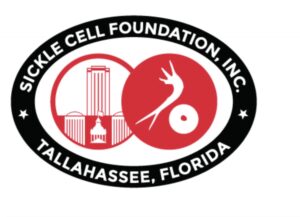
The local Sickle Cell Foundation held its third annual conference Friday at the Four Points by Sheraton hotel. It is a two-day event that emphasizes critical and innovative ways through education and research to deliver care to the sickle cell population while also focusing on development of theoretical models.
Velma Stevens, executive director of the foundation, is the one who has been putting the conference together for the past three years.
“It’s important to hold these conferences and for us to network with other organizations because we need the funding,” Stevens said. “Sickle cell is the most prominent genetic disorder that is the least funded and least treated.”
Although there were not many people or organizations that showed up, there were still some heavy hitters in the room when it came to the health-care field, from nurses who worked at Tallahassee Memorial HealthCare, nursing professors and doctors who deal with sickle cell.
Mildred D. Fennal, a nursing professor, shared some powerful words about young adults who tend to fail when they have sickle cell because of their support system.
“We are not doing too much to understand a person who has sickle cell and one reason why we are not being successful is because we are working in isolation for something that takes a team effort,” Fennal said.
Fennal noted that kids or young adults tend to bite off more than they can chew when it comes to handling sickle cell, because their caregivers have no coping skills. With the caregivers having no coping skills, this trickles down to the individual with the sickle cell.
For example, if the caregiver says on a daily basis that nurses and doctors don’t do anything to help ones with sickle cell, then the individual with sickle cell will start to believe that. It depends on the family on how that particular person will handle the disease, she said.
Dameneka Africa, a senior at FAMU majoring in social work and also someone who has the sickle cell disease, was present at the conference Friday morning. She says having the disease inspires her.
“Having sickle cell pushes me to succeed simply because I know that everyone has problems and no matter the issues you face or discrepancies in life, success in possible,” Africa said. “It’s an inconvenience that I have to deal with it, but it doesn’t stop me from being the greatest person I can be.”
The Sickle Cell Foundation in Leon County is the only county to hold a conference within a 150-mile radius. This means sickle cell awareness is not shared through communities like it should.
Sarah M. Killian traveled from Atlanta where she is a clinical associate professor for nursing at Georgia State University. She spoke about the different laws when it comes to sickle cell and how they can be beneficial.
“If someone has sickle cell, according to the Sickle Cell Treatment Act signed by President George W. Bush, there is Medicaid reimbursement for education and other services related to SCD prevention treatment,” Killian said.
Sickle cell disease is just as important as any other disease, she said.